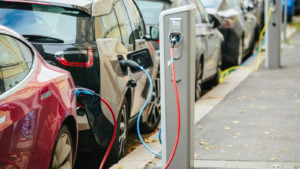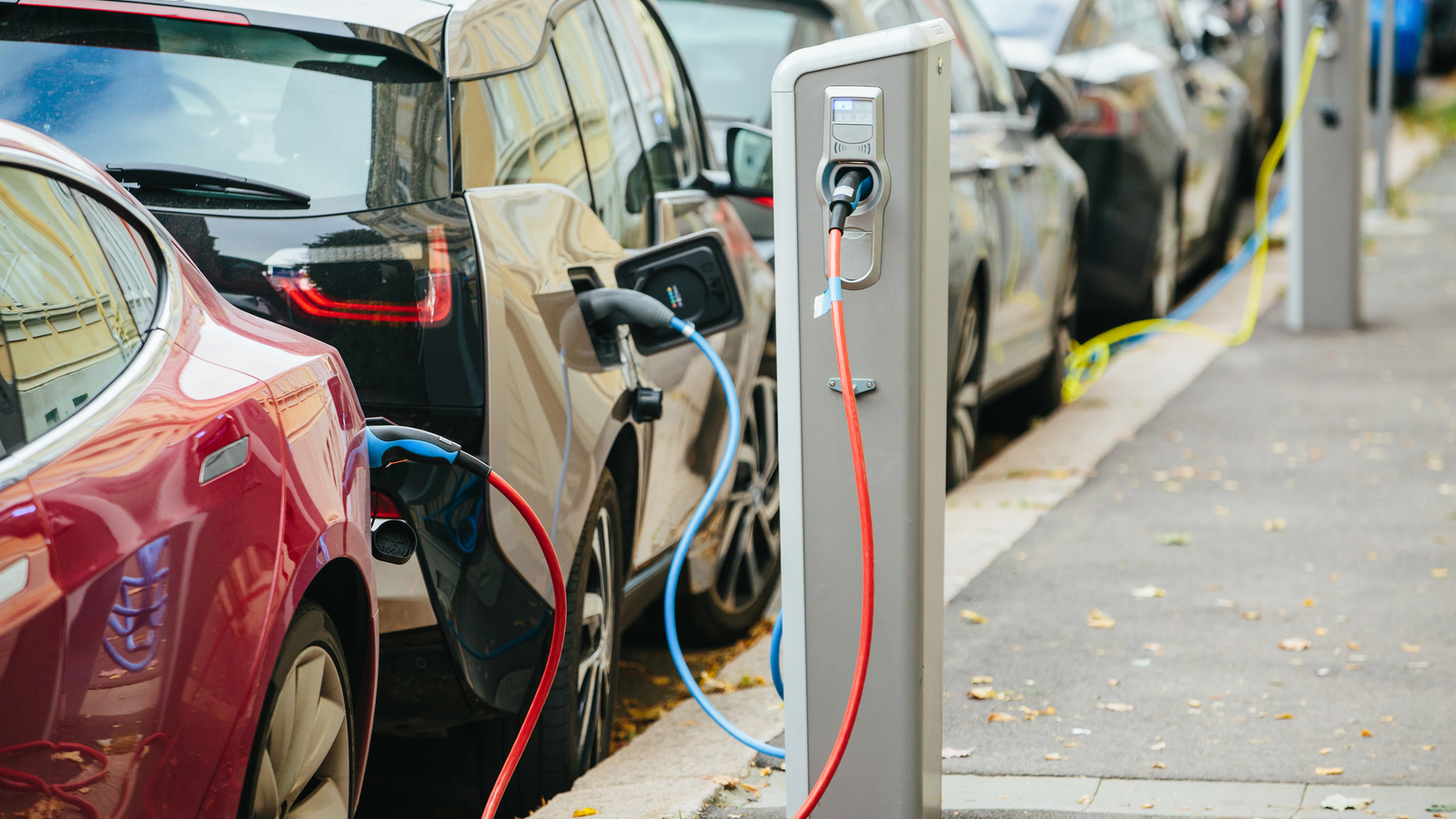When it comes to the burgeoning luxury EV market, Tesla (NASDAQ:TSLA) gets all the love on Wall Street — and reasonably so. Elon Musk and company pioneered the space, dominate the space and continue to make the market’s best and most desirable vehicles. But in this market traditionally dominated by Tesla, it’s time to start throwing some love at an emerging luxury EV automaker by the name of Fisker, which is going public through a reverse merger with Spartan Energy Acquisition Corp (NASDAQ:SPAQ) stock.

The reason to like Fisker — and SPAQ stock — is simple.
The EV maker has enough enough talent and experience — it’s headed by Henrik Fisker, who is a legend when it comes to luxury automobile design — to realistically emerge as a viable competitive threat to Tesla in the burgeoning and soon-to-be-enormous luxury EV space.
Is Fisker a Tesla killer? No. Far from it.
But Tesla won’t run away with the entire luxury EV market by itself. Tesla will be the leader. Fisker will be a solid second-fiddle.
Fisker’s implied market cap today based on the SPAQ stock price? Around $4 billion. Tesla’s market cap? Close to $400 billion.
Needless to say, SPAQ stock has huge long-term upside potential amid the EV boom of the 2020s.
Here’s a deeper look.
EVs Are the Future
There will be no greater disruption in the 2020s than the electrification of automobile transportation.
About 64.3 million new passenger cars were sold globally in 2019. Only 2.3 million of them (or 3.5%) were electric, which is up 97,500 (0.15% penetration_ in 2013.
Clearly, the shift towards EV has already started. It will only accelerate in the 2020s.
Demand is shifting, as over 80% of prospective car buyers today want an EV. Laws are shifting, as California just banned the sale of gas cars post-2035. Technology is improving, with the average range of an EV has increasing by 140% since 2011. Costs are falling, with average EV prices having dropped 70% since 2010. Supply is pivoting, as every auto maker in the world is making an all-out blitz into the EV category.
The future couldn’t be any clearer.
EVs are on the cusp of disrupting the multi-trillion-dollar auto market, and over the next two decades, will become globally ubiquitous.
Where there’s disruption, there’s opportunity.
Sure, all the major auto OEMs are going to launch new EVs and try to keep up with the times. But they’ve been glacially slow in doing so – and in all the time they’ve wasted deciding if EVs are the future, new auto brands committed to a 100% EV future have emerged and are ready to rapidly steal share from these auto market incumbents.
See Tesla, NIO (NYSE:NIO), Workhorse (NASDAQ:WKHS), Xpeng (NYSE:XPEV), so on and so forth.
Right now, you should add Fisker and SPAQ stock to that list.
Fisker Ocean Is the Real Deal
Fisker is not just another up-and-coming EV maker with a bold vision and a small chance of success.
The company is headed up by Henrik Fisker, a man whose reputation in unrivaled in the luxury auto market. He was, after all, the design brain behind many of the luxury automobile world’s most iconic vehicles, such as the Aston Martin DB9, the Aston Martin Vantage, the BMW Z8 and the BMW X5.
Given his experience and track record, when Henrik designs a car, the world pays attention.
Over the past several years, Henrik has spent all his time and effort designing the Fisker Ocean, which — when it launches in fourth quarter of 2022 — will be a legitimate rival to Tesla’s Model X and Y in terms of performance, design and features.
The Fisker Ocean offers best-in-market driving range at up to 300 miles (which is largely consistent with base versions of the Model X and Y).
It also offers four-wheel drive for off-roading, lots of horsepower, a sub 3 second 0-to-60 miles-per-hour get-up, a large digital display screen equipped with a state-of-the-art in-vehicle software platform, and a very aesthetic, futuristic exterior design (all of these features are comparable to the Tesla Model X and Y).
Sure, it’s smaller in terms of cargo space (45 cubic feet with seats down, versus 60+ cubic feet for the X and Y) and seating space (it’s a 5-seater, versus options for 7-seater in the X and Y). But the Ocean makes up for those shortcomings via a built-in solar panel roof (which will allow for auto-recharging while driving, and therefore, result in longer driving ranges) and a fully “vegan” interior (the entire interior is made from recyclable materials).
So, on a technical specs and aesthetics basis, the Ocean is pretty close to rivaling Tesla’s Model X and Model Y.
Yet the Ocean will retail for just $37,500 – well below the $50,000 base price for the Model Y, and $80,000 base price for the Model X. After tax credits, that retail price falls to about $30,000 – putting it on par with most mid-size, gas-powered luxury SUVs out there (and below many of them).
Needless to say, then, if Fisker brings the Ocean to market at this $37,5000 price point, it’ll be a complete game-change for the luxury EV market — and huge upside catalyst for SPAQ stock.
Executional Roadmap Is De-Risked
Of course, that’s a huge “if”. There’s a lot of execution risk when it comes to scaling manufacturing for a new car, especially for a company that has yet to manufacture any cars at scale like Fisker.
Plus, as many know, this is not Henrik Fisker’s first foray into the EV space. His first car – the electric sports car Karma, which counted Justin Bieber and Al Gore as customers – ended up being a flop after the company’s battery supplier went under.
But that’s why Fisker is aiming to outsource all of the manufacturing this time around, through Volkswagen – the world’s largest automobile maker. In so doing, Fisker is significantly reducing execution risk, battery supplier reliance, capital requirements, manufacturing costs and speed-to-market.
Plus, the partnership will allow Fisker to hyper-focus on design and software – two components which will help the company establish and sustain competitive advantages.
Overall, then, while there is still tons of execution risk here, there is also much less risk for Fisker than for most other emerging EV makers — and that makes SPAQ stock especially attractive amid the sea of red-hot EV stocks.
Huge Upside for Fisker Stock
The math to SPAQ stock scoring you huge gains isn’t hard to follow.
Management is targeting 225,000 deliveries, $13.2 billion in revenue, and $2.8 billion adjusted EBITDA by 2025. My modeling suggests those targets are very doable, given that the EV market will likely measure 10+ million global unit sales by then.
Tesla stock, over the past year, has average a forward EV/EBITDA multiple of ~20X. Based on a 20X forward multiple, $2.8 billion in 2025 adjusted EBITDA implies a 2024 enterprise value for Fisker of $56 billion.
The current enterprise value – after backing out ~$1 billion in cash – is $3 billion.
Thus, SPAQ stock does have a semi-visible runway to rise almost 20X over the next five years.
Bottom Line on SPAQ Stock
I can guarantee you that not many stocks are going to rise 20X over the next four years alone.
But Fisker could, amid a surge in luxury EV demand.
For that reason alone, SPAQ stock should absolutely be on your buy radar today.
On the date of publication, Luke Lango did not have (either directly or indirectly) any positions in the securities mentioned in this article.
The New Daily 10X Stock Report: 98.7% Accuracy – Gains Up to 466.78%. InvestorPlace’s brand-new and highly controversial newsletter is rocking the industry delivering one breakthrough stock recommendation each and every trading day, delivered straight to your inbox. 98.7% Accuracy to Date – Gains Up to 466.78%. Now for a limited time you can get in for just $19. Click here to find out how.
